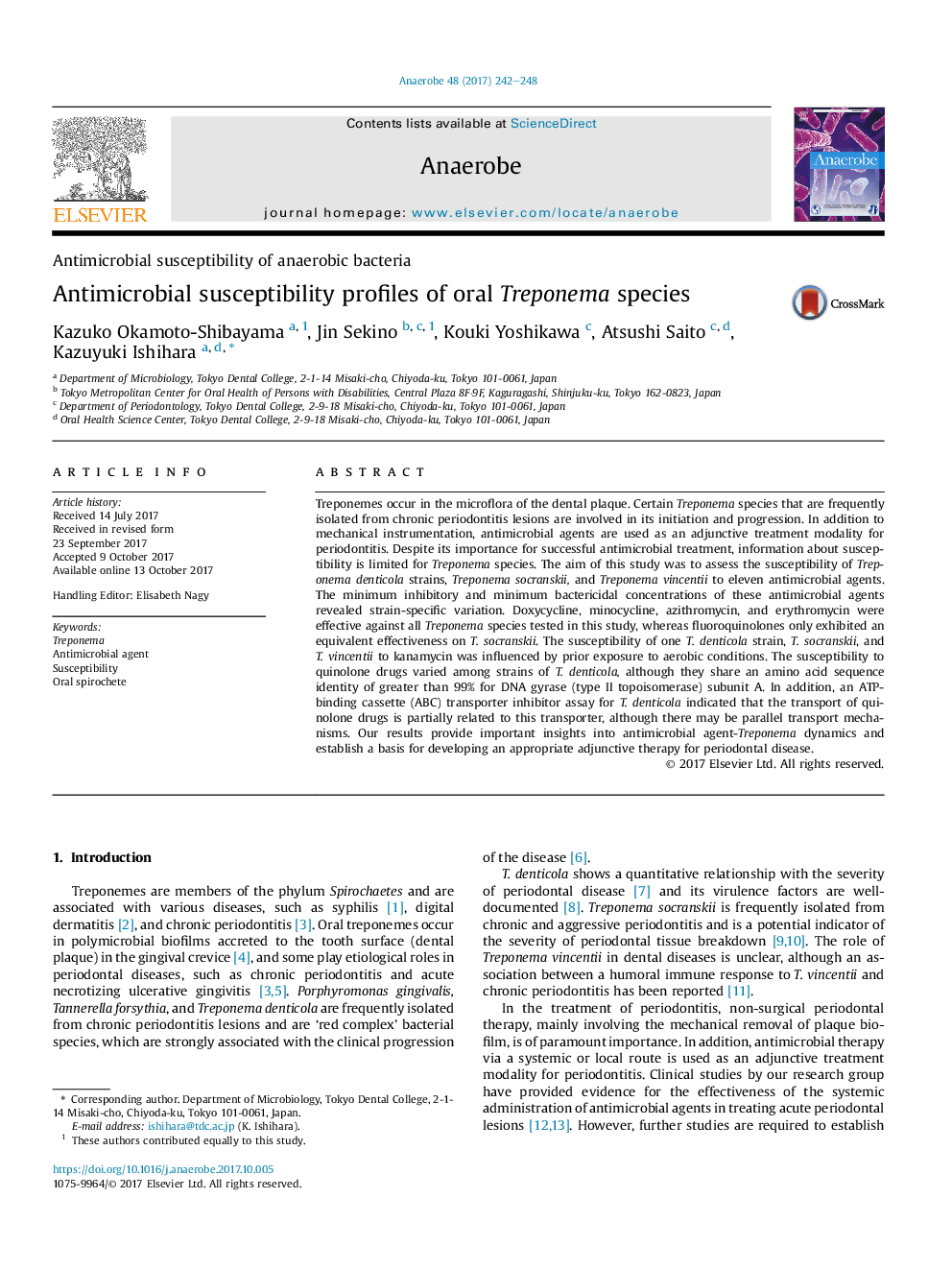| Article ID | Journal | Published Year | Pages | File Type |
|---|---|---|---|---|
| 5671360 | Anaerobe | 2017 | 7 Pages |
â¢Antimicrobial susceptibility was assessed in various Treponema species.â¢MICs and MBCs revealed variation in susceptibility and resistance among species.â¢Susceptibility to kanamycin was influenced by prior exposure to aerobic conditions.
Treponemes occur in the microflora of the dental plaque. Certain Treponema species that are frequently isolated from chronic periodontitis lesions are involved in its initiation and progression. In addition to mechanical instrumentation, antimicrobial agents are used as an adjunctive treatment modality for periodontitis. Despite its importance for successful antimicrobial treatment, information about susceptibility is limited for Treponema species. The aim of this study was to assess the susceptibility of Treponema denticola strains, Treponema socranskii, and Treponema vincentii to eleven antimicrobial agents. The minimum inhibitory and minimum bactericidal concentrations of these antimicrobial agents revealed strain-specific variation. Doxycycline, minocycline, azithromycin, and erythromycin were effective against all Treponema species tested in this study, whereas fluoroquinolones only exhibited an equivalent effectiveness on T. socranskii. The susceptibility of one T. denticola strain, T. socranskii, and T. vincentii to kanamycin was influenced by prior exposure to aerobic conditions. The susceptibility to quinolone drugs varied among strains of T. denticola, although they share an amino acid sequence identity of greater than 99% for DNA gyrase (type II topoisomerase) subunit A. In addition, an ATP-binding cassette (ABC) transporter inhibitor assay for T. denticola indicated that the transport of quinolone drugs is partially related to this transporter, although there may be parallel transport mechanisms. Our results provide important insights into antimicrobial agent-Treponema dynamics and establish a basis for developing an appropriate adjunctive therapy for periodontal disease.
